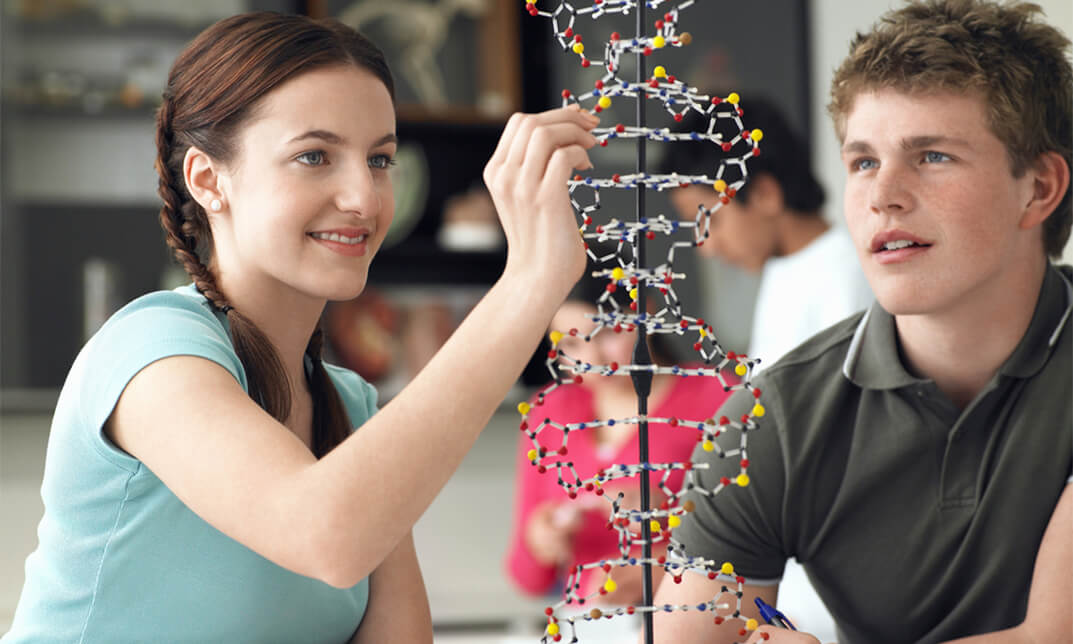You must be logged in to take this course → LOGIN | REGISTER NOW
This course aims to help students become a more visible and impactful researcher by reaping the benefits of open science principles. Students will learn the basic concepts of open science, the advantages bring for the students as a researcher and for science in general, about the different forms of open access publishing and how students can benefit from these advantages at different phases of students research.
Assessment
This course does not involve any written exams. Students need to answer 5 assignment questions to complete the course, the answers will be in the form of written work in pdf or word. Students can write the answers in their own time. Each answer needs to be 200 words (1 Page). Once the answers are submitted, the tutor will check and assess the work.
Certification
Edukite courses are free to study. To successfully complete a course you must submit all the assignment of the course as part of the assessment. Upon successful completion of a course, you can choose to make your achievement formal by obtaining your Certificate at a cost of £49.
Having an Official Edukite Certification is a great way to celebrate and share your success. You can:
- Add the certificate to your CV or resume and brighten up your career
- Show it to prove your success
Course Credit: TU Delft
Course Curriculum
| Module: 01 | |||
| 1.1 Join in with the 2nd scientific revolution | 00:02:00 | ||
| 1.1.1 Course overview | 00:02:00 | ||
| 1.1.2 Course format | 00:01:00 | ||
| 1.2 Open Science, Open Data and Open Access | 00:04:00 | ||
| 1.3 The advantages of being an open researcher | 00:01:00 | ||
| 1.3.1.1 A bigger impact | 00:04:00 | ||
| 1.3.1.2 A broader audience | 00:03:00 | ||
| 1.3.1.3 Meeting requirements of the TU Delft and funders | 00:03:00 | ||
| 1.3.1.4 Journal requirements | 00:01:00 | ||
| 1.3.2 Practising good science | 00:03:00 | ||
| 1.3.3 Enabling a better scientific system | 00:03:00 | ||
| Module: 02 | |||
| John Alan Pascoe – Introduction | 00:02:00 | ||
| 1 Anneke Zuiderwijk van Eijk Introduction | 00:02:00 | ||
| REPAiR – Introduction | 00:04:00 | ||
| 2.1 Introduction to the module | 00:03:00 | ||
| 2.2 The what, why and how of data management planning | 00:02:00 | ||
| 2.2.1 General information on your research project | 00:02:00 | ||
| 2.2.2 Data collection | 00:03:00 | ||
| 2.2.3 Data storage and backup | 00:04:00 | ||
| 2.2.4 Data documentation | 00:01:00 | ||
| 2.2.4.1 Metadata standards | 00:01:00 | ||
| 2.2.4.2 File naming folder structure and identifiers | 00:02:00 | ||
| Module: 03 | |||
| 2.2.5 Data access | 00:03:00 | ||
| 2.2.6 Data sharing and reuse | 00:03:00 | ||
| 2.2.7 Data preservation and archiving | 00:01:00 | ||
| 2.2.7.1 Which data should you archive | 00:02:00 | ||
| John Alan Pascoe – Open data | 00:05:00 | ||
| 2 Anneke Zuiderwijk van Eijk Open Data | 00:04:00 | ||
| 3.0 Maximizing accessibilty – publishing Open Access | 00:01:00 | ||
| 3.1 The Open access model versus the subscription-based model | 00:04:00 | ||
| 3.2.1 Misconception 1 | 00:02:00 | ||
| 3.2.2 Misconception 2 | 00:02:00 | ||
| 3.2.3 Misconception 3 | 00:01:00 | ||
| Module: 04 | |||
| 3.2.4 Misconception 4 | 00:01:00 | ||
| 3.2.5 Misconception 5 | 00:01:00 | ||
| 3.2.6 Misconception 6 | 00:01:00 | ||
| 3.3 Submitting to an Open Access journal | 00:01:00 | ||
| 3.3.1 Assessing Open access journal quality | 00:02:00 | ||
| 3.3.2 Article Processing Charges (APC’s) | 00:03:00 | ||
| 3.3.3 Open licenses | 00:03:00 | ||
| 3.4.1 Submitting to a subscription-based journal | 00:04:00 | ||
| 3.4.2 Copyright and subscription based journals | 00:02:00 | ||
| John Alan Pascoe – Open access | 00:04:00 | ||
| Module: 05 | |||
| Video 3 Anneke Zuiderwijk | 00:02:00 | ||
| Open Access and the REPAiR project | 00:04:00 | ||
| REPAiR – Opinions on Open Access | 00:07:00 | ||
| 4.1.1 Social media for Open Science part 1 | 00:02:00 | ||
| 4.1.2 Social media for Open Science part 2 | 00:04:00 | ||
| 4.1.3 Social media for Open Science part 3 | 00:03:00 | ||
| 1.1 Join in with the 2nd scientific revolution | 00:10:00 | ||
| 1.1.1 Course overview | 00:05:00 | ||
| 1.1.2 Course format | 00:05:00 | ||
| 1.2 Open Science, Open Data and Open Access | 00:10:00 | ||
| 1.3 The advantages of being an open researcher | 00:05:00 | ||
| Module: 06 | |||
| 1.3.1.2 A broader audience | 00:05:00 | ||
| 1.3.1.3 Meeting requirements of the TU Delft and funders | 00:05:00 | ||
| 1.3.1.4 Journal requirements | 00:05:00 | ||
| 1.3.2 Practising good science | 00:10:00 | ||
| 1.3.3 Enabling a better scientific system | 00:05:00 | ||
| 2.1 Introduction to the module | 00:10:00 | ||
| 2.2 The what, why and how of data management planning | 00:05:00 | ||
| 2.2.1 General information on your research project | 00:05:00 | ||
| 2.2.2-Data-collection | 00:05:00 | ||
| 2.2.3 Data storage and backup | 00:05:00 | ||
| 2.2.4-Data-documentation | 00:05:00 | ||
| Module: 07 | |||
| 2.2.4.1 Metadata standards | 00:05:00 | ||
| 2.2.4.2 File naming folder structure and identifiers 18 | 00:10:00 | ||
| 2.2.5 Data access | 00:05:00 | ||
| 2.2.6 Data sharing and reuse | 00:10:00 | ||
| 2.2.7 Data preservation and archiving | 00:05:00 | ||
| 3.0 Maximizing accessibilty – publishing Open Access | 00:05:00 | ||
| 3.1 The Open access model versus the subscription-based model | 00:10:00 | ||
| 3.2.1 Misconception 1 | 00:05:00 | ||
| 3.2.2 Misconception 2 | 00:05:00 | ||
| 3.2.3 Misconception 3 | 00:05:00 | ||
| 3.2.4 Misconception 4 | 00:10:00 | ||
| Module: 08 | |||
| 3.2.5 Misconception 5 | 00:05:00 | ||
| 3.2.6 Misconception 6 | 00:10:00 | ||
| 3.3 Submitting to an Open Access journal | 00:05:00 | ||
| 3.3.1 Assessing Open Access journal quality | 00:05:00 | ||
| 3.3.2 Article Processing Charges (APC’s) | 00:05:00 | ||
| 3.3.3 Open licenses | 00:10:00 | ||
| 3.4.1 Submitting to a subscription-based journal | 00:15:00 | ||
| 3.4.2 Copyright and subscription-based journals | 00:05:00 | ||
| 4.1.1 Social media for Open science part 1 | 00:05:00 | ||
| 4.1.2 Social media for Open science part 2 | 00:10:00 | ||
| 4.1.3 Social media for Open science part 3 | 00:20:00 | ||
| Assessment | |||
| Submit Your Assignment | 00:00:00 | ||
| Certification | 00:00:00 | ||
Course Reviews
No Reviews found for this course.






